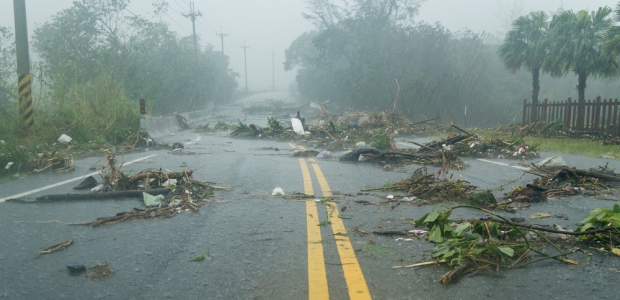
Inspector General Finds Emergency Relief Program Unable to Track Improvements
The FHWA program has been given approximately $5.7 billion since FY2012 by Congress. The program aims to ensure infrastructure is resilient enough to withstand extreme weather that could disrupt the transportation network and require major reconstruction.
A report from DOT's Inspector General finds that the Federal Highway Administration's Emergency Relief Program, which funds repair and reconstruction of highways and roads that have sustained serious damage from catastrophic failures or natural disasters, has no process to track state DOTs' efforts to include resilience improvements in their emergency relief projects. Though there are no specific requirement exists for FHWA to conduct such tracking, its lack of data on resilience improvements hurts its ability to ensure the benefits of resilience are achieved in the relief projects, the report found.
The FHWA program has been given approximately $5.7 billion since FY2012 by Congress; it aims to ensure infrastructure is resilient enough to withstand extreme weather that could disrupt the transportation network and require major reconstruction.
DOT's current draft strategic plan says the department will better ensure that infrastructure is sufficiently resilient. The IG report was self-generated, meaning the Inspector General's office initiated the review on its own because of the importance resilience plays in ensuring a safe and reliable transportation system.
The review found that the primary guidance for the program was updated in 2013 to include a greater focus on infrastructure resilience, but it doesn't define "resilience improvement," inform states how to incorporate resilience improvements into emergency relief projects, or share related best practices.
The report recommends that the federal highway administrator:
- Revise the Emergency Relief Manual to include a definition of resilience improvement and identify procedures states should use to incorporate resilience into ERP-funded projects
- Develop and implement a process to identify best practices for improving the resilience of emergency relief projects and share them with division offices and state DOTs
- Develop and implement a process to track the consideration of resilience improvements for emergency relief projects and their associated costs
The office provided FHWA with its draft report on Nov. 13, 2017. FHWA concurred with recommendations 1 and 2 and provided appropriate actions and completion dates, and it artially concurred with recommendation 3; the DOT agency did not support the tracking of associated costs for resilience improvements, given that such improvements may be incorporated as part of the project's design and construction standards. FHWA has proposed to develop a process to track the consideration of resilience improvements in emergency relief projects by Dec. 31, 2018, which meets the intent of recommendation 3.